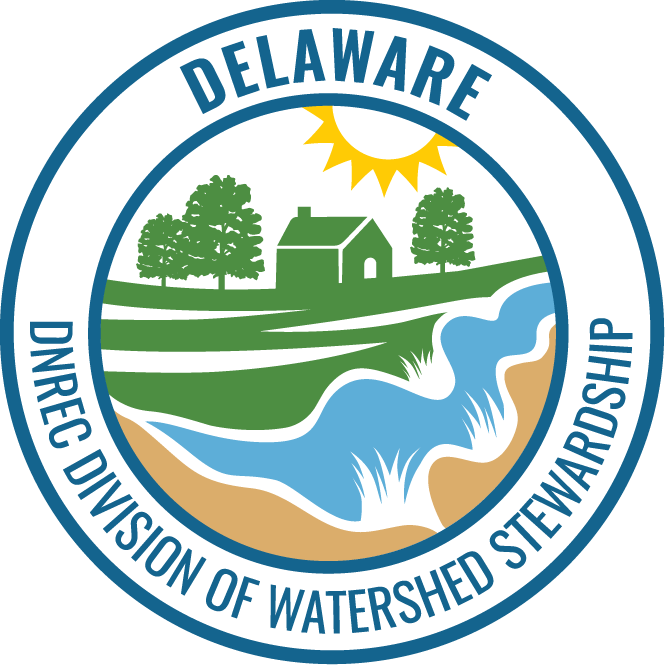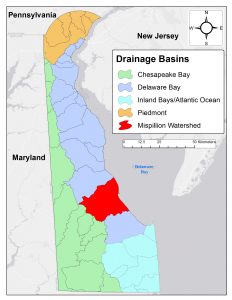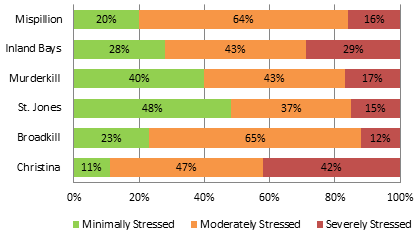
Facebook Twitter Instagram YouTube
Written on: March 14th, 2016 in Wetland Assessments
By Brittany Haywood, DNREC’s Wetland Monitoring and Assessment Program

In the summer of 2012, DNREC’s Wetland Monitoring & Assessment Program rated the health of wetlands in the Mispillion and Cedar Creek River Watershed’s tidal and non-tidal flat and riverine wetlands. The goal of this project was to summarize recent gains and losses in wetland acreage, assess the condition, and identify impacts on the wetland. The watershed received an overall grade of C; broken down into tidal wetlands receiving a B-, non-tidal flat wetlands receiving a C+, and non-tidal riverine wetlands receiving a C-. This was the sixth watershed in Delaware to be assessed.
The Mispillion Watershed lost 20% of wetlands since the early 1700s, with the majority due to conversion of land to agricultural fields or developments and erosion from rising sea levels.

The three most common impacts to wetlands were the:
Presence of invasive plants (such as Phragmites) that can out grow native plant species
Ditching of wetlands to remove its ability to hold water
Agriculture or development just outside the wetland blocking its ability to migrate landward.
The full report, data and report card are now available online.